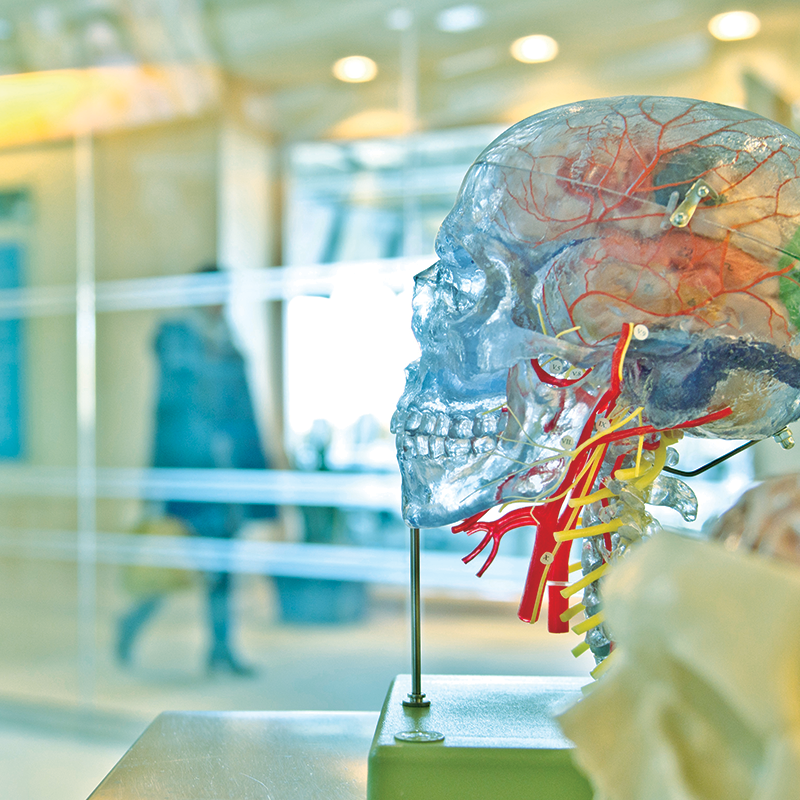Renee Thompson’s research centers on understanding the everyday emotional experiences of people across the lifespan, focusing on internalizing psychopathology. She is interested the dynamics of emotional experience, how and why people regulate their emotions, people’s beliefs about their emotions, and the bidirectional associations between social media use and emotion. She conducts research on children and adolescents (e.g., typically developing and those at risk for psychopathology) and a variety of adult samples (e.g., adults with current or remitted MDD), using a multi-method approach, including experience sampling and peripheral physiological assessment. She is principal investigator of the Emotion and Mental Health Lab.
Publications
- Hennefield L., Luking, K. R., Barch, D. M., Luby, J. L., & Thompson, R. J. (2025) Asking preadolescents about suicide is not associated with increased suicidal thoughts. Journal of the American Academy of Child and Adolescent Psychiatry. Advance online publication. https://www.jaacap.org/article/S0890-8567(25)00178-9/fulltext
- Gross, A. M., Lai, J., Eckland, N. S., & Thompson, R. J. (2025). Interoceptive awareness and clarity of one’s emotions and goals: A naturalistic investigation. Emotion. Advanced publication. https://doi.org/10.1037/emo000151
- Lai, J., Eckland, N. S., & Thompson, R. J. (2025). The reasons why people don’t regulate their emotions and their associations with well-being. Cognition and Emotion.
- Liu, D. Y., Strube, M. J., & Thompson, R. J. (2021). Interpersonal emotion regulation: An experience sampling study. Affective Science, 2, 273-288. https://doi.org/10.1007/s42761-021-00044-y pdf
- Liu, Y. D., Strube, M J, & Thompson, R. J. (2024). Do emotion regulation difficulties in depression extend to social context? Everyday interpersonal emotion regulation in current and remitted major depressive disorder. Journal of Psychopathology and Clinical Science, 133(1), 61-75. https://doi.org/10.1037/abn0000877
- Thompson, R.J., Bailen, N., & English, T. (2021). Everyday emotional experiences in Major Depressive Disorder in Remission: An experience sampling study. Clinical Psychological Science, 9(5), 866-878. https://doi.org/10.1177/2167702621992082
- Thompson, R. J., Liu, D. Y., & Lai, J. (2024). What predicts the intrinsic and extrinsic interpersonal emotion regulation? A multilevel approach to examining individual and social processes in everyday life. Motivation and Emotion, 48, 776-790. https://doi.org/10.1007/s11031-024-10089-8
- Thompson, R.J., Springstein, T., & Boden, M. T. (2021). Clarifying emotion differentiation. Social and Personality Psychology Compass, 15(3), e12584. http://dx.doi.org/10.1111/spc3.12584
- Thompson, R. J., Whalen, D. J., Gilbert, K. E., Tillman, R., Hennefield, L., Donohue, M. R., Hoyniak, C., Barch, D. M. & Luby, J. L. (2025). Preadolescent suicidal thoughts and behaviors: An intensive longitudinal study of risk factors. Journal of the American Academy of Child and Adolescent Psychiatry, 64(3), 275-385. https://doi.org/10.1016/j.jaac.2024.03.018
- Tuck, A. B., Feldman, M. J., Lindquist, K. A., & Thompson, R. J. (2025). Social contexts are associated with higher emotional awareness than nonsocial contexts: Evidence in a sample of people with and without major depressive disorder. Emotion, 25(3), 633–634. https://dx.doi.org/10.1037/emo0001436
- Tuck, A. B., & Thompson, R. J. (2024). Types of social media use are differentially associated with trait and momentary affect. Emotion, 24(7), 1600–1611. https://doi.org/10.1037/emo0001379
- Tuck, A. B., & Thompson, R. J. (2023). The Social Media Use Scale: Development and validation. Assessment, 31(3), 617-636. https://doi.org/10.1177/10731911231173080



